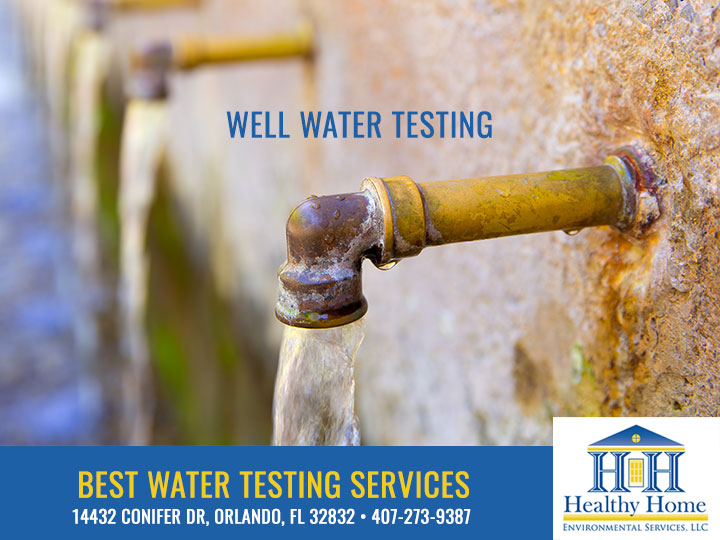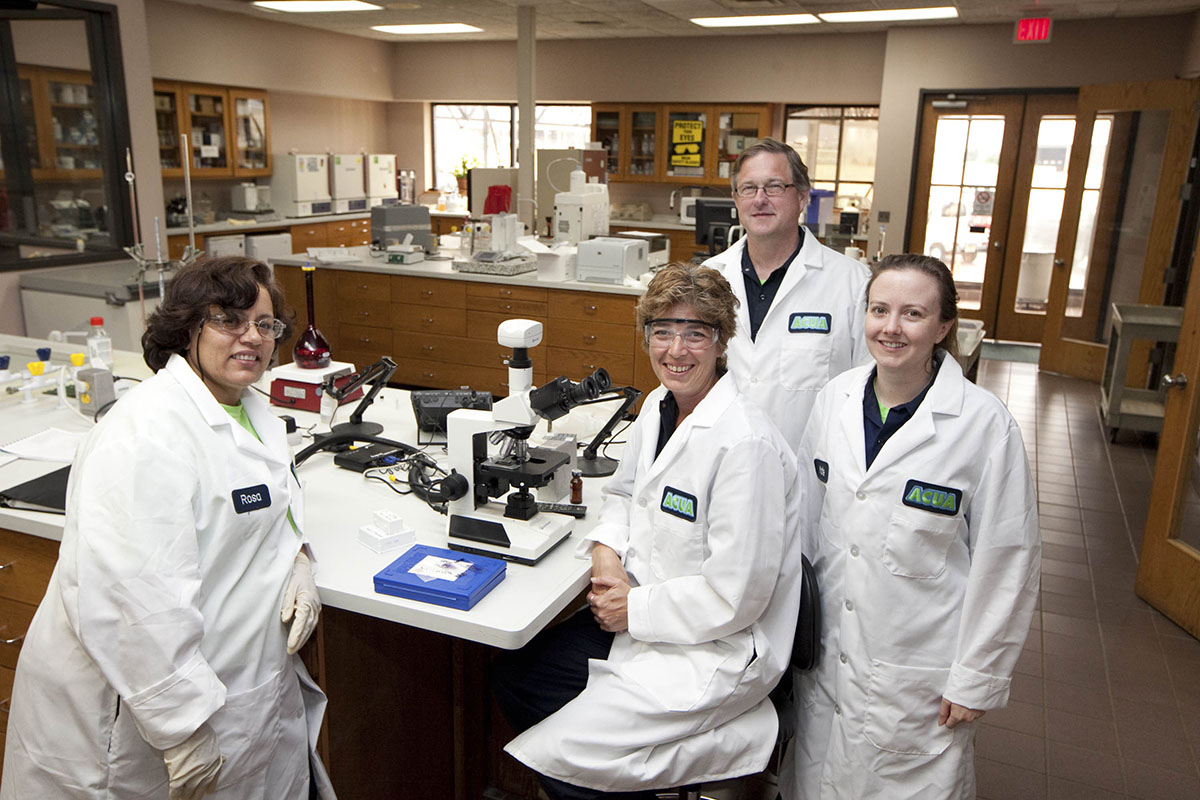Expert Water Testing Services Orlando: Safeguard Your Water Quality
Expert Water Testing Services Orlando: Safeguard Your Water Quality
Blog Article
Learn How Water Screening Can Discover Contaminants and Protect Your Household's Well-being
Understanding the value of water screening is essential for securing your household's wellness, as our water supply can nurture hidden dangers. By checking out the auto mechanics of water testing, one can reveal the unseen hazards lurking in apparently excellent water sources.
Relevance of Water Checking
Acknowledging the essential function water plays in maintaining life, the value of water screening can not be overstated. Making sure that water is free from unsafe substances is important for keeping healthy areas and ecosystems. Water Testing Service.
Water screening serves as an aggressive action to recognize potential threats that may compromise water quality. With organized evaluation, it helps detect physical, chemical, and organic criteria that can pose risks to human health and wellness. Normal testing permits the very early detection of concerns, facilitating timely treatments to protect against prevalent contamination and linked illness.
Additionally, water testing supports regulative compliance, guaranteeing that water carriers fulfill established safety standards and standards established by governmental authorities. It cultivates openness and responsibility, developing public rely on the water supply system. Furthermore, testing gives valuable information that notifies water monitoring techniques, enabling lasting use and preservation of this priceless resource.
Essentially, water testing is a crucial device that safeguards public health, ensures regulative adherence, and advertises the sustainable monitoring of water sources. Its relevance in safeguarding both communities and individuals can not be taken too lightly.
Typical Water Impurities
Among the numerous aspects that can endanger water quality, common water pollutants consist of a series of physical, chemical, and biological substances that position substantial risks to human health and the setting. Physical contaminants usually involve sediments or natural materials suspended in water, which can influence clarity and preference. Chemical contaminants encompass a large selection of substances, including chemicals, herbicides, metals like lead and mercury, and industrial chemicals. These chemicals can infiltrate water supplies through farming runoff, industrial discharges, or leaching from pipelines and tank.
Organic pollutants, largely microorganisms, infections, and protozoa, emerge from human and animal waste getting in water supply. Virus such as E. coli, Giardia, and Cryptosporidium are notorious for triggering intestinal health problems and can be especially unsafe to children, the elderly, and those with jeopardized immune systems. Nitrites and nitrates, typically stemming from fertilizers, pose an additional health and wellness risk, specifically to infants, possibly causing problems like methemoglobinemia or "blue infant syndrome."
Additionally, arising impurities, including pharmaceuticals and personal care products, have elevated problems as a result of their determination and unknown lasting results. Comprehending these pollutants is important for implementing reliable water therapy methods and guaranteeing secure drinking water.
How Water Screening Functions
Recognizing the range of impurities in water highlights the significance of efficient screening techniques to secure public wellness. Water screening is a systematic process made to determine and evaluate various impurities that can position risks to human health. This includes a collection of analytical treatments that spot pollutants such as germs, heavy steels, natural chemicals, and other contaminants. The testing procedure generally starts with example collection from the water source, ensuring that samples are depictive and uncontaminated during the collection procedure.
Chemical testing typically involves spectrometry or chromatography, both of which can determine and determine particular chemical compounds. In addition, physical characteristics like turbidity, color, and ph are analyzed to supply insight into the overall quality of the water.
The specific methods used in water testing depend on the details pollutants of worry and the water's planned use. By regularly using these strenuous testing protocols, researchers and public health authorities can ensure the safety and security and high quality of water, thereby safeguarding neighborhoods from possible health threats.
Picking the Right Examination
The first action is evaluating the water source-- be it municipal, well, or surface water-- as each has unique dangers. Metropolitan water may call for testing for disinfectant by-products, while well water might require screening for nitrates, microorganisms, and hefty metals.
Next, take into consideration environmental elements and recent events. Neighboring agricultural tasks may demand screening for chemicals and herbicides, whereas industrial zones could need checks for chemical contaminants. Furthermore, any type of adjustments in water smell, look, or preference should motivate details screening for common contaminants like lead, chlorine, or organic virus.
Specialist water testing solutions supply thorough packages that target a variety of possible pollutants. These kits usually straighten with criteria set by the Epa (EPA) or neighborhood wellness departments. For an extra customized method, seeking advice from a water top quality expert can offer insights right into which certain tests are necessary based on local concerns and find specific health check needs, making certain the security of your house's health.

Maintaining Water Security

In enhancement to testing, appropriate maintenance of water systems plays an important duty. This includes checking and servicing plumbing systems, storage tanks, and septic systems to stop leaks or backflow that could present contaminants - Water Testing Service. Employing water filtration systems made to address specific neighborhood concerns can additionally protect against impurities, providing an additional layer of defense
Public recognition and education and learning are similarly important in keeping water safety and security. Areas must be notified about prospective dangers related to neighborhood water sources and the necessary steps to minimize them. Motivating public participation in water safety and security efforts promotes a cumulative duty that boosts overall efficiency.
Ultimately, an extensive method that integrates normal testing, system upkeep, and neighborhood involvement is crucial in safeguarding water top quality. By doing so, families can be ensured of tidy and risk-free water, safeguarding their health and health.

Verdict
Regular water testing is vital for recognizing impurities such as his response microorganisms, hefty steels, and chemicals that posture health threats. By examining water samples, hidden risks can be identified, making sure the stipulation of safe alcohol consumption water.
Recognizing the value of water testing is essential for safeguarding your family members's health and wellness, as our water supply can nurture undetected dangers.Water screening serves as an aggressive procedure to determine possible dangers that might compromise water high quality.Additionally, water testing sustains regulative conformity, guaranteeing that water service providers satisfy recognized safety criteria and guidelines set by governmental authorities. Community water could call for testing for disinfectant results, while well water may need screening for nitrates, bacteria, and hefty metals.
Routine water screening is a critical element in keeping the quality of water resources, making it possible for prompt interventions prior to impurities get to hazardous degrees.
Report this page